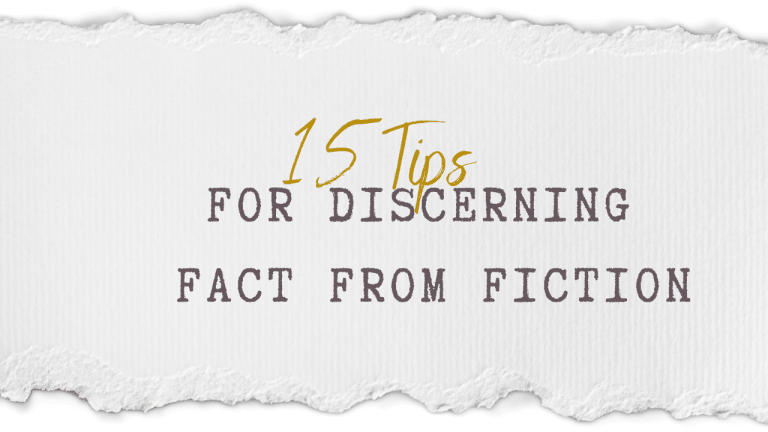
After all the events and misinformation associated with the 2020 election, I felt compelled to set aside the message I had prepared, and instead share some insights and resources about discernment, and how we can better navigate news, Truth and fiction … especially as it relates to our democracy.
More than ever before, we are being asked to be better consumers of information.The days of following one news source, or following “the leader” of whatever team we happen to be on will no longer work. And we can’t assume that everything we read is from the source that claims to be providing it. We must realize that information can be used as a weapon. It can be used to create conspiracies, sow distrust, further personal agendas, and create discord. It can also be used to empower, educate, uplift, expand consciousness, open new doors and create exciting new possibilities.
First, we need to choose — are we committed to seeing the facts, a Higher Truth, or are we more committed to being right?
~The power is in the choice …
1. First, we need to choose — are we committed to seeing the facts, a Higher Truth, or are we more committed to being right? If we fall into the latter category, we’ll close ourselves off to Truth, facts, and personal growth. We can’t grow if we think we’re always right. We close the door to Truth, facts, and deeper learning as well. A closed mind is exactly that, and it’s the biggest enemy of a democracy and personal growth.
2. Higher Truth lands in the realm of spiritual discernment and principles to help us navigate our inner truth. Let’s do the Reader’s Digest version. What’s the tone of what you’re reading or viewing? Does it feel uplifting, peaceful, inclusive, helpful? Is it expanding consciousness? Then you are sensing a Higher Truth, and in alignment with how your soul sees it. If something feels fueled by anger, feeds a sense or righteousness, entitlement, judgment, oppression, or fear … take a step back and question its validity and how you’re seeing what you’re viewing. If you feel a negative emotion, your soul is giving you a warning signal. What actually happened, and what are you making it mean? Who stands to gain if you get angry or buy into the fear? General statements and rhetoric that fuel fear are rarely based in fact, but are opinions. And everyone gets to have their own opinion; that’s what makes us individuals. But opinions are not Truth or facts.
3. Facts are what actually happened, as in — 43 people walked through the door at 3 pm. A story or opinion is — 43 confused people walked through the door looking for the source of happiness. The second example includes opinion and commentary. It may be correct or fiction. One can be corroborated, as in we can count 43 people that walked through the door. But, unless we personally interview all 43 people to ask them why they walked through the door, we don’t really know why, or if they were confused.
4. News literacy sources are growing to address the needs in a world with infinite sources of information. You can find out more at The News Literacy Project. Also, the State University of New York-Stony Brook’s Center for News Literacy has a curriculum to help undergrads discern the truth of the information they are reading. They also offer free courses for educators.
5. The Senior Editorial Advisor for The George W. Busch Institute shares these tips to look for when consuming information:
– Does the story have multiple sources?
– Does it provide context?
– Is the story balanced and non-partisan?
– Does the site or publication have an open, transparent way of acknowledging its ownership?
– Does the publication run corrections?
6. University Of Washington professors Carl Bergstrom and Jevin West recommend asking:
– Who is telling me this?
– How do they know it?
– What’s in it for them?
7. Stories that are incendiary are designed intentionally to incite “fires” and stir up conflict. Watch out for them, as they are almost driven by an agenda. They are not committed to facts. Look closely and be as detached as possible. Are they providing facts or hearsay? Are there other news sources providing this information? If so, how many? If one or two sources are reporting it, and you’re not seeing it elsewhere in nationally or regionally recognized news sources, chances are there’s more conjecture than fact involved. It’s a red flag. You can use the AP news Fact checker here.
8. Pay attention to short, punchy quips and taglines.They may speak to your heart, but they are not news. And they don’t provide information. Taglines are opinions; marketers and political strategists use them to their advantage to capture your vote or get you to buy. Some are sincere and created with purpose to represent the service or contribution that candidate wants to make. Others are politically motived, or are solely designed to discredit other candidates, who may actually be a better fit for your personal views. Watch out for these, because if they have to resort to inciting distrust or fear, what are they hiding?What do they really stand for? To see if a candidate is aligned with your personal views on the issues important to you; go to their website. There are also a number of sites you can check to see incumbent voting records or where they stand on issues, such as VoteSmart.org .

9. You can also use FactCheck.org, a project of the Annenberg Public Policy Center, a well-respected nonpartisan, nonprofit that conducts research in five areas, including political communication. Their mission is to be a “consumer advocate” for voters. Their aim is to reduce the level of deception and confusion in U.S. politics. They monitor the factual accuracy of what is said by major U.S. political players in the form of TV ads, debates, speeches, interviews and news releases.
10. Another fact checking website is Snopes . They check and verify everything from analyzing if an image was digitally altered to what’s included in a congressional bill. You can view details about their fact-checking process on their website as well.
11. Read beyond the headline. I know this one may seem obvious, but a recent study by the Tow Center for Digital Journalism at Columbia university reported that 70% of people don’t read beyond the headline on articles they share on social media.
12. Credible reporting includes: who, what, when, where and why. If a news story is missing any of these, question its legitimacy. Check the byline, who wrote or shared it? Research them, who else do they write for? Are there any other credible news sources reporting this?
13. Follow the money. The Federal Election Commission publishes campaign finance data on their website; It’s a matter of public record. You can see who is contributing to the candidates, and how the money is being disbursed. It’s very enlightening.
14. Congress.gov gives you information about House and Senate floor activities, bills under consideration, congressional records and more.
15. NewsGuard is a subscription service that works on your web browser to provide trust ratings. You can find out more here!
It’s my hope that you find these resources useful. Regardless of political affiliation, regardless of whether one’s preferred candidate won or lost, as Americans, we stand for peaceful transitions. Period. What we witnessed on Wednesday Jan 7, 2021 is not patriotic. It’s okay and lawful to protest. It is not okay to storm the capital, destroy property, and threaten people who are trying to perform the duties they are sworn to uphold. In fact, that is illegal, and under our laws, they can be prosecuted. We are all responsible for the information we consume, and the actions we take as a result of that.
Let’s stand in higher awareness, cultivate peace, educate, be present, stand by our constitution, and be responsible consumers of information.
Subscribe to my weekly messages!
100% Privacy and a peaceful, no-spam place of ease and grace!
Author

Elari Onawa
Life On Purpose Coach & Author Of Just Believe: How Faith In Yourself Shifts Everything
I’ve been coaching and leading Life On Purpose and Self-Discovery programs since 2003. Prior to that, I led large organizations for 20+ years, helping them align with their dreams and goals. If you’re ready for more purpose and joy, if you want to embrace more of who you are, and create more of what you really want ...I can help you have that!